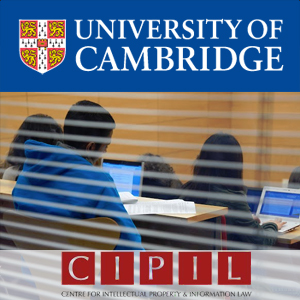'Behind the Steele Curtain: An Empirical Study of Trademark Conflicts Law, 1952-2016' - Tim Dornis: CIPIL Seminar
Duration: 1 hour 25 mins
Share this media item:
Embed this media item:
Embed this media item:
About this item

| Description: |
Tim Dornis, Leuphana Law School, spoke on the topic of "Behind the Steele Curtain: An Empirical Study of Trademark Conflicts Law, 1952-2016" at a seminar on 18 May 2017.
Tim W. Dornis is a professor of law at Leuphana Law School (Lüneburg, Germany). He studied law and economics in Germany (Eberhard-Karls-Universität Tübingen) and in the United States (Columbia University, LL.M. (James Kent Scholar) and Stanford Law School, J.S.M.). Before joining Leuphana’s faculty, Tim spent several years practicing in an international law firm and as a civil-law judge in Germany. He was also a Hauser Global Fellow at New York University School of Law. His habilitation thesis (University of Zurich, Switzerland) has been published by Cambridge University Press under the title Trademark and Unfair Competition Conflicts: Historical-Comparative, Doctrinal, and Economic Perspectives. For more information see the CIPIL website at http://www.cipil.law.cam.ac.uk |
|---|
| Created: | 2017-05-23 12:37 |
|---|---|
| Collection: | CIPIL Intellectual Property Seminar Series |
| Publisher: | University of Cambridge |
| Copyright: | Mr D.J. Bates |
| Language: | eng (English) |
| Distribution: |
World
|
| Explicit content: | No |
| Abstract: | US doctrine on international trademark disputes is founded on a precedent from 1952. Steele v. Bulova Watch Co. is the first and only Supreme Court decision on the question of how far US trademark law should be extended beyond the US’s national borders when an international infringement is at issue. Even though cases have drastically multiplied there has been no comprehensive account of the actual state of the law. Courts and commentators continue to rely on a small set of leading cases, Steele and a few appellate court decisions, neglecting the landscape of lower courts’ decision-making. An empirical study of the field’s complete case law from 1952 until 2016 helps to address this blind spot. The results show that much of the conventional wisdom is questionable, if not incorrect. Based on the findings, several corrections to existing doctrine must be suggested. |
|---|---|

